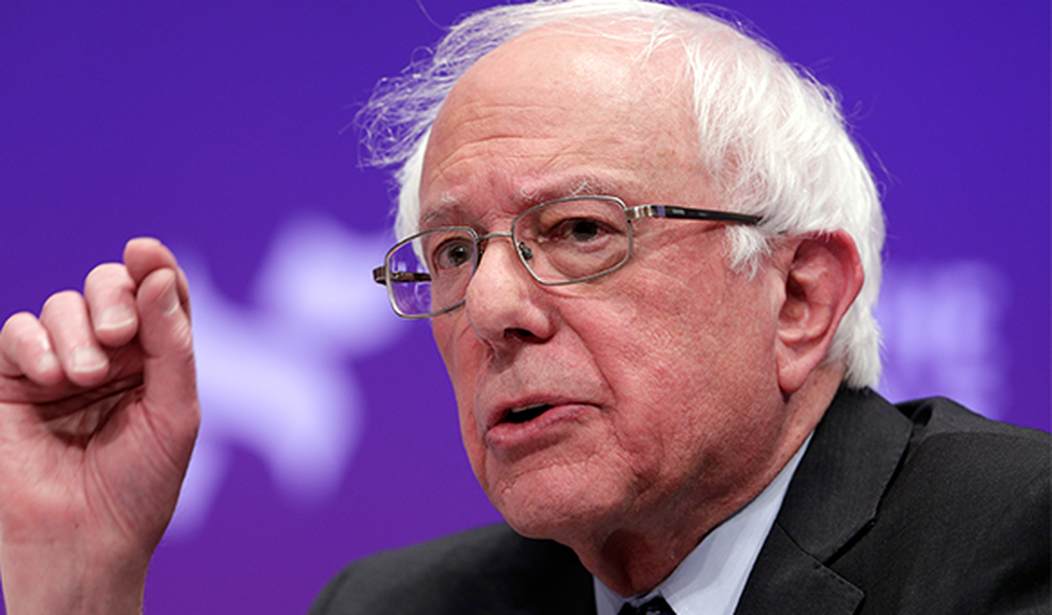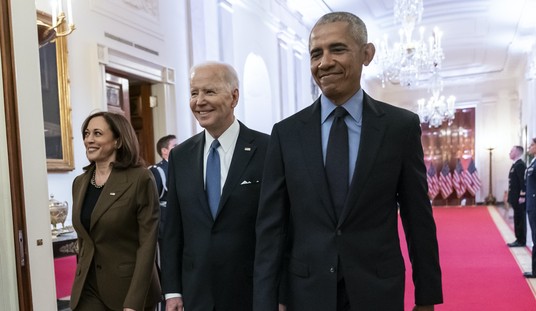Earlier this month, Senator Bernie Sanders released a new version of his plan for "Medicare for All."
Four of his competitors for the Democratic presidential nomination -- Kirsten Gillibrand, Kamala Harris, Elizabeth Warren, and Cory Booker -- quickly signed on as co-sponsors. They all think Medicare for All is their ticket to the nomination, and ultimately the White House.
It's not hard to see why. A recent Reuters survey found that 85 percent of Democrats, and even a slim majority of Republicans, are on board with a single-payer system.
But public support for single-payer isn't as solid as it seems. Medicare for All could doom Democrats in the general election -- and even fracture the Democratic coalition in 2020 and beyond.
Medicare for All is popular until people get a whiff of the details. Seventy-one percent of Americans say they'd support the concept if it meant guaranteeing health insurance for all Americans, according to a recent Kaiser Family Foundation poll.
But if they're told Medicare for All would require people to pay more in taxes, support drops to 37 percent.
Those tax increases would be larger than any in recent memory. Charles Blahous, a scholar at the Mercatus Center, analyzed Senator Sanders's 2017 Medicare for All bill and found that it would increase federal spending by almost $33 trillion over a decade. This year's version promises coverage of home- and community-based long-term care. So it'll be even more expensive.
Even House Speaker Nancy Pelosi has expressed skepticism about Medicare for All's feasibility. "Thirty trillion dollars. Now, how do you pay for that?" she asked in a recent interview with Rolling Stone magazine.
Recommended
Sanders has some ideas: a new 4 percent individual income tax, a new 7.5 percent payroll tax, a new 70 percent marginal income tax on the wealthy, and a 77 percent estate tax.
Voters also recoil once they're informed Medicare for All would make it "unlawful for a private health insurer to sell" coverage duplicating what the federal government provides.
Sanders's plan declares just about every health benefit -- from hospital and doctor visits to dental, vision, and hearing care -- the sole province of the federal government. In other words, Medicare for All would render private coverage effectively illegal.
More than half of all Americans currently have private coverage; the vast majority like it. Seven in 10 Americans with employer-sponsored health plans are satisfied with them. Only 13 percent of people think the government should abolish private insurance and expand the likes of Medicare and Medicaid to all citizens, according to a recent Hill-HarrisX poll.
Even key members of the Democratic coalition, like organized labor, are primed to rebel against single-payer.
Look at New York, where state legislators are considering a bill that would establish a statewide single-payer system. Like Medicare for All, the New York Health Act would ban private insurance and enroll every New Yorker in a single government-run plan.
Union leaders are fighting the plan behind the scenes. They realize single-payer would eliminate the generous health plans they negotiate from employers on behalf of their members. Those plans are among the biggest draws of union membership -- and are often more generous than the coverage workers would receive under single-payer.
It's tough to envision union leaders, much less rank-and-file members, lending their support to a candidate who wants to abolish these plans. Without the support of organized labor, the Democratic presidentialnominee has no chance in 2020.
Or consider a constituency Democrats picked up during last fall's midterm elections -- educated suburban women. These women aren't necessarily committed progressives. Sixty of the 123 wealthiest and most-educated cities and counties with competitive House races went for the Democrats last year, according to a USA TODAY analysis. Only 39 did in 2016.
These moderates will surely think twice about voting Democrat in 2020 if they face the prospect of losing their current coverage and a sizeable portionof their disposal income. According to one estimate from Emory Universityprofessor Kenneth Thorpe, more than seven in 10 workers with private insurance would spend more under Medicare for All than they currently do on health insurance.
Politicians normally win elections by promising to make life better for voters. It's tough to see how Democrats can reclaim the White House while campaigning on a plan that would abolish private health insurance and more than double taxes.
Sally C. Pipes is president, CEO, and Thomas W. Smith Fellow in Health Care Policy at the Pacific Research Institute. Her latest book is The False Promise of Single-Payer Health Care (Encounter). Follow her on Twitter @sallypipes.

























Join the conversation as a VIP Member